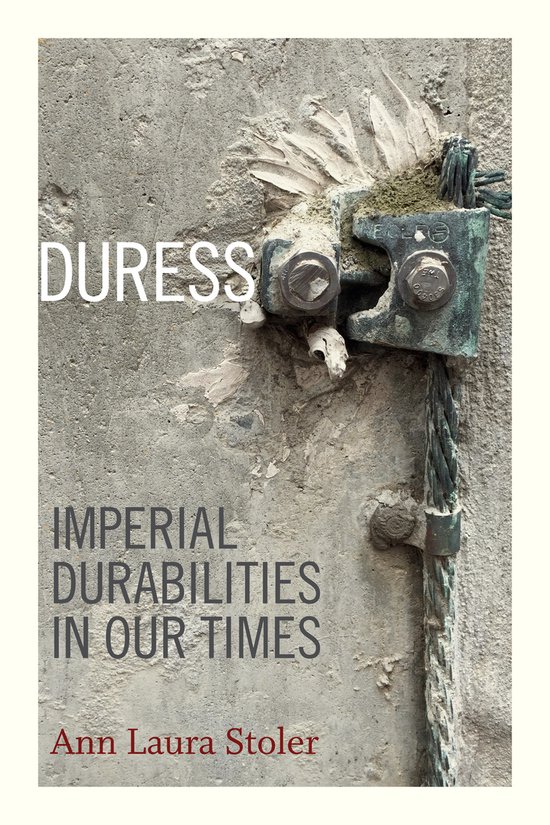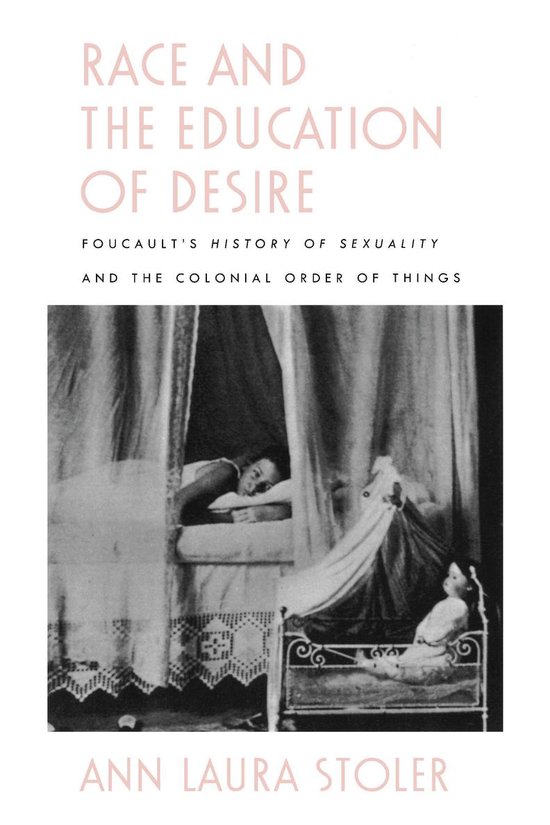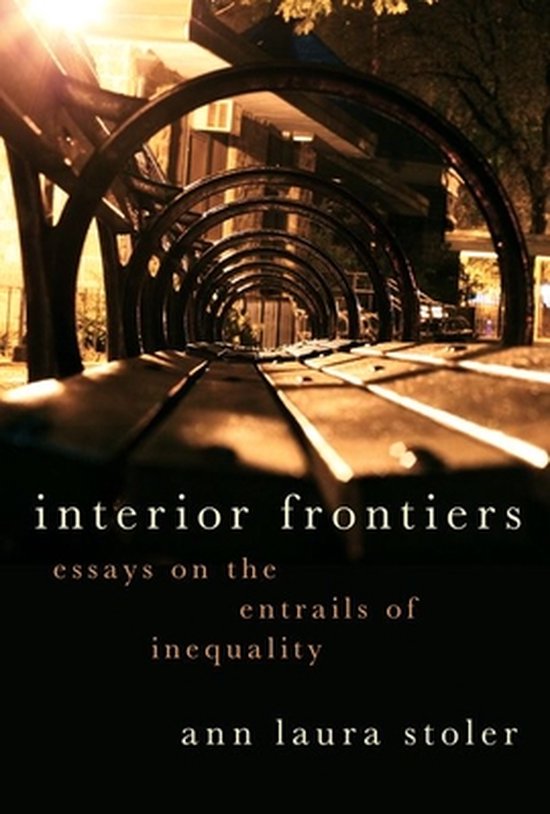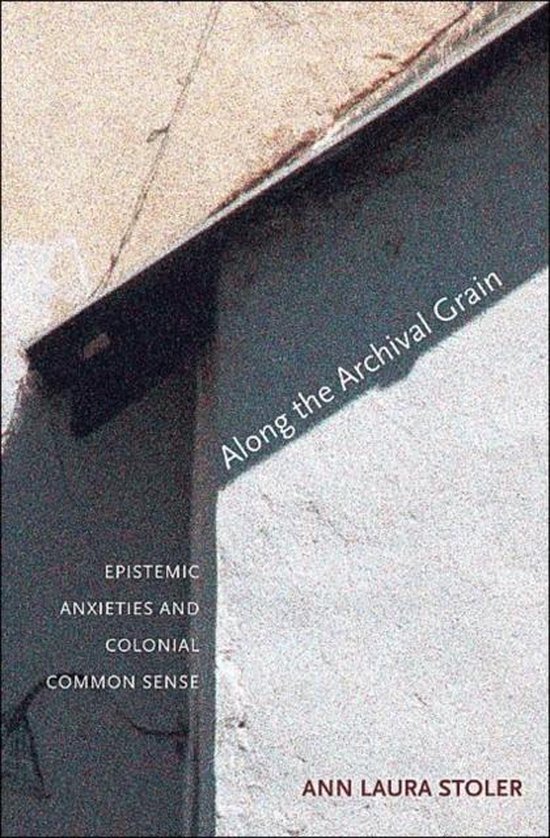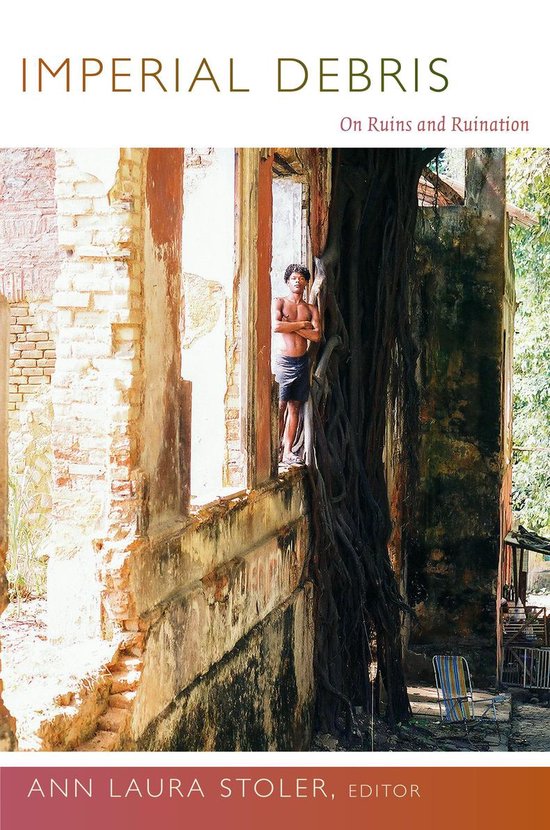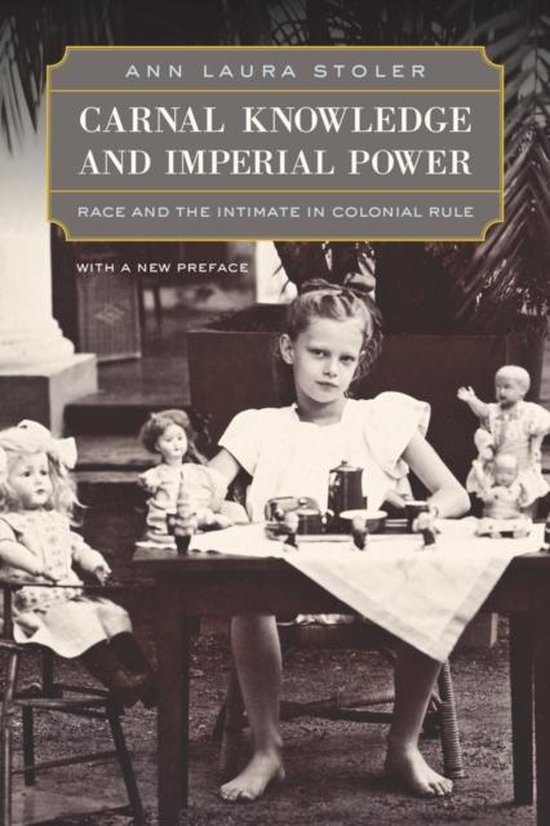
Carnal Knowledge and Imperial Power
Investigates the matters of state in late 19th and early 20th century Indonesia, particularly the critical role played by sexual arrangements and affective attachments in creating colonial categories and distinguishing the ruler from the ruled. This work argues that social classification is not a benign cultural act but a potent political one.
“Comprehensive, erudite, and compelling.”— Journal of Modern History
“Stoler presents a groundbreaking work that emanates from her empirical investigations of the European colonial experiences in Asia of the 19th and early 20th centuries. At the same time, she engages with cutting-edge discussions advanced by postcolonial theorists in recent years. By introducing the issues of race, sexuality, and intimacy into the study of colonialism, or the interactions of Europeans with the indigenous populations in their households and in their personal or sex lives, Stoler offers a fresh look at the European colonial experience, in which the line between the colonizers and the colonized becomes significantly blurred. This 'blurring,' or hybridity, is, of course, an important issue in postcolonial theory, yet Stoler's presentation reveals that this hybridity is not only a theoretical question, but also (though largely absent from the extant scholarship) a reflection of historical reality. Stoler shows that hybridization took place at the personal, quotidian level, where the Europeans interacted actively with the natives, and in the economic arena, where impoverished Europeans were forced to compete with locals for a good living in 'their' colonies. An eye-opening book. . . . Highly recommended.”— CHOICE
“ Carnal Knowledge and Imperial Power is a compelling text, its dense analysis made accessible and almost visceral by the historical ethnography and scholarly detail…the book offers a rich and intricate account of the imperial project at work and strikes a difficult balance between theory, history, and ethnography in its analysis.”— Journal of Ethnic and Migration Studies
This landmark book tracks matters of intimacy to investigate matters of state in late nineteenth and early twentieth century Indonesia, particularly the critical role played by sexual arrangements and affective attachments in creating colonial categories and distinguishing the ruler from the ruled. Arguing that social classification is not a benign cultural act but a potent political one, Ann Laura Stoler's essays focus on parents and parenting, nursing mothers, servants, orphanages, and abandoned children to reveal why they were understood as so essential to imperial governance and why they have been so consistently absent from its historiography. In a new preface, Stoler takes up a broad range of problematics raised in the first edition, including the analytics of comparison, the treatment of the intimate, and more.
“Comprehensive, erudite, and compelling.”— Journal of Modern History
“Stoler presents a groundbreaking work that emanates from her empirical investigations of the European colonial experiences in Asia of the 19th and early 20th centuries. At the same time, she engages with cutting-edge discussions advanced by postcolonial theorists in recent years. By introducing the issues of race, sexuality, and intimacy into the study of colonialism, or the interactions of Europeans with the indigenous populations in their households and in their personal or sex lives, Stoler offers a fresh look at the European colonial experience, in which the line between the colonizers and the colonized becomes significantly blurred. This 'blurring,' or hybridity, is, of course, an important issue in postcolonial theory, yet Stoler's presentation reveals that this hybridity is not only a theoretical question, but also (though largely absent from the extant scholarship) a reflection of historical reality. Stoler shows that hybridization took place at the personal, quotidian level, where the Europeans interacted actively with the natives, and in the economic arena, where impoverished Europeans were forced to compete with locals for a good living in 'their' colonies. An eye-opening book. . . . Highly recommended.”— CHOICE
“ Carnal Knowledge and Imperial Power is a compelling text, its dense analysis made accessible and almost visceral by the historical ethnography and scholarly detail…the book offers a rich and intricate account of the imperial project at work and strikes a difficult balance between theory, history, and ethnography in its analysis.”— Journal of Ethnic and Migration Studies
This landmark book tracks matters of intimacy to investigate matters of state in late nineteenth and early twentieth century Indonesia, particularly the critical role played by sexual arrangements and affective attachments in creating colonial categories and distinguishing the ruler from the ruled. Arguing that social classification is not a benign cultural act but a potent political one, Ann Laura Stoler's essays focus on parents and parenting, nursing mothers, servants, orphanages, and abandoned children to reveal why they were understood as so essential to imperial governance and why they have been so consistently absent from its historiography. In a new preface, Stoler takes up a broad range of problematics raised in the first edition, including the analytics of comparison, the treatment of the intimate, and more.
| Auteur | | Ann Laura Stoler |
| Taal | | Engels |
| Type | | Paperback |
| Categorie | | Mens & Maatschappij |
